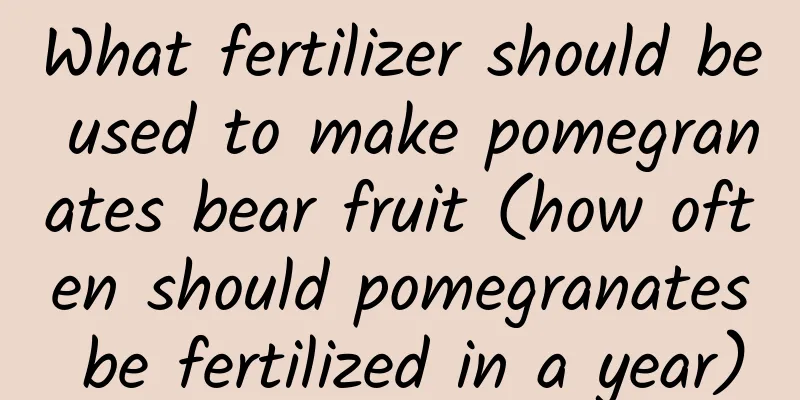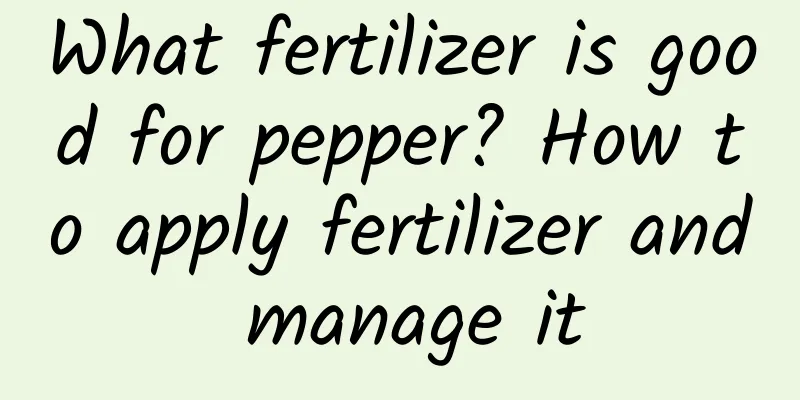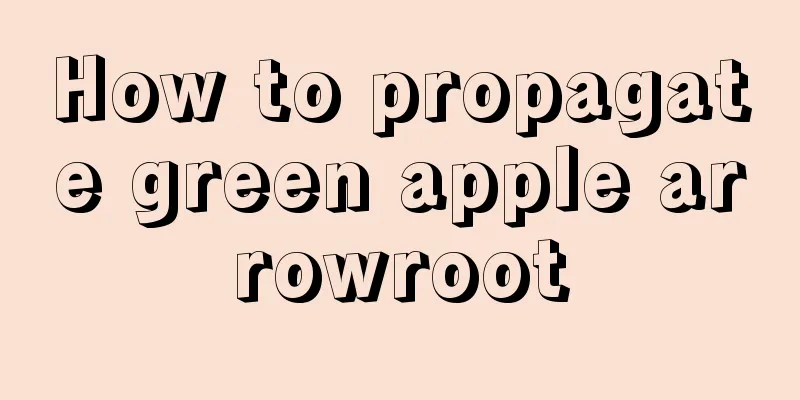What fertilizer should be used to make pomegranates bear fruit (how often should pomegranates be fertilized in a year)

|
The annual fertilization plan for pomegranates should be formulated according to the growth stage of the pomegranate, because the fertilizer requirements of pomegranates are different at different stages. Pomegranates need to be fertilized several times a year, during the budding period, flowering period, fruit expansion period and after picking. Fertilization during the budding period of pomegranateDuring the budding period of pomegranate, topdressing mainly consists of nitrogen, phosphorus and potassium. You can choose balanced water-soluble fertilizers with large elements. During this period, topdressing is done to accelerate leaf growth, promote flower bud differentiation, and prepare sufficient nutrients in advance for later fruit setting. Topdressing during pomegranate flowering periodTop dressing during flowering can be chosen between the late flowering period and the early fruit setting period. At this time, nitrogen and phosphorus elements are mainly used. The main function is to promote the growth of new shoots, ensure the fruit setting rate, and avoid the situation of being flashy but not fruitful. Many pomegranate farmers have found that although many pomegranate flowers bloom, the fruit set rate is low because they are not fertilized in time during the flowering period. Topdressing during the fruit expansion period of pomegranateThe most important top dressing is during the pomegranate fruit-swelling period. At this time, the pomegranate has a greater demand for fertilizer, so two top dressings can be carried out. The topdressing content is mainly high-potassium water-soluble fertilizer, which can promote fruit enlargement, change color and increase sweetness, thereby improving the quality of pomegranate. At the same time, you can also spray foliar fertilizer appropriately. Foliar fertilizer mainly supplements medium and trace elements, which can avoid fruit falling, fruit cracking and other phenomena. Fertilizing after picking pomegranatesAfter picking pomegranates, they need to be fertilized for the rest of the year, usually in autumn. This is to ensure the yield of pomegranates in the next year, replenish soil nutrients in time, and avoid the occurrence of alternate years. Postpartum fertilizer can be a combination of microbial agents + organic fertilizers and water-soluble fertilizers to improve the soil and promote root development. Finally, the methods of fertilizing pomegranates include ring ditch fertilization, radial ditch fertilization, hole fertilization, irrigation fertilization, and strip ditch fertilization. When using water-soluble fertilizers, pay attention to the secondary dilution method and pay attention to the dosage. |
>>: When is the best time to plant onions (how to plant onions for high yield)
Recommend
How to propagate pansy by cuttings
1. Cutting time Before taking cuttings, you must ...
How often should I water water spinach?
How often should I water water spinach? Generally...
How to solve the problem of osmanthus not blooming
1. Ensure dormancy Reason: When growing osmanthus...
The Flower Language of the Tower of Ashina
The flower language of the Tower of Red: elegance...
How does Begonia survive the winter? Pictures of Begonia
1. How to spend the winter 1. Move indoors: Begon...
How to make Forsythia tea
1. Production method 1. Boil directly It is a tra...
Disease control of Syzygium wilfordii
Sooty Disease Sooty mold is a pathogen that cause...
Tips and methods for attracting bees
Many people are very concerned about the issue of...
When is the best time to transplant ground-planted peony?
When transplanting ground peony, you need to prep...
The main value of sunflowers
Ornamental value Sunflower belongs to the Portula...
What to do if the roots of golden-edged agave rot
1. Check if it is a watering problem First of all...
When does the red umbrella bloom?
1. Flowering time The natural flowering period of...
What should you pay attention to when using pure milk to water flowers?
It is very good to water flowers with pure milk. ...
How to grow coffee orchid
1. How to raise 1. Light: Coffee orchid likes to ...
How to safely overwinter Dendrobium officinale? Will Dendrobium officinale be frozen to death?
1. How to safely survive the winter 1. Ensure the...









